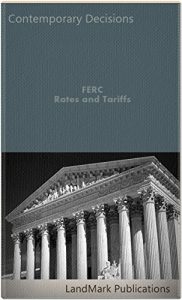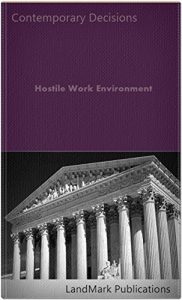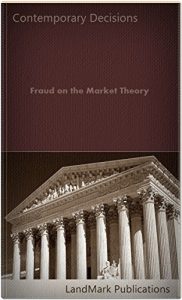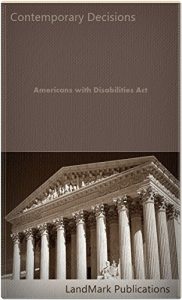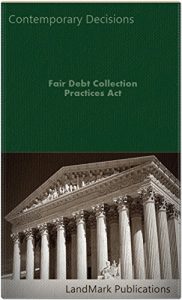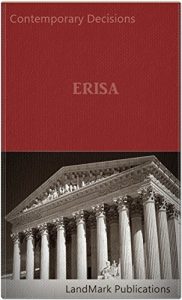THIS CASEBOOK contains a selection of 168 decisions of the U. S. Court of Appeals that analyze and discuss issues stemming from rate and tariff rulings of the Federal Energy Regulatory Commission. The selection of decisions spans from 2006 to the date of publication.
Section 205 of the Federal Power Act ("FPA") mandates that "[a]ll rates and charges ... demanded, or received by any public utility for ... the transmission or sale of electric energy subject to the jurisdiction of the Commission ... shall be just and reasonable, and any such rate or charge that is not just and reasonable is hereby declared to be unlawful." 16 U.S.C. § 824d(a). Section 205(d) provides that unless the Commission otherwise orders, "no change shall be made by any public utility in any such rate, charge, classification, or service, or in any rule, regulation, or contract relating thereto, except after sixty days' notice to the Commission and to the public." Id. § 824d(d). Section 205(e) empowers the Commission, on its own initiative or upon complaint, to investigate the lawfulness of a rate in a newly filed schedule, and to suspend the effectiveness of the changed schedule for up to five months. Id. § 824d(e). The Commission may also order that increased rates and charges be collected subject to refund so that when the rate schedule goes into effect after suspension, the "interested public utility or public utilities" must refund the amount of the increased rates or charges "found not justified" by the Commission. Id. XCEL Energy Services Inc. v. FERC, 815 F. 3d 947 (DC Cir. 2016).
Sections 205 and 206 provide two mechanisms through which FERC can fulfill its statutory charge of ensuring the justness and reasonableness of rates. Section 205 governs the lawfulness of proposed rates; Section 205(d) requires utilities to file all proposed changes with FERC, and, "unless the Commission otherwise orders," filed rates cannot go into effect without "sixty days' notice to the Commission and to the public." Id. § 824d(d). Section 205(e) further authorizes FERC, "either upon complaint or upon its own initiative[,]" to hold hearings on the lawfulness of proposed rates. Id. § 824d(e). "[P]ending such hearing," it "may" also suspend the rates for up to "five months beyond the time when [they] would otherwise go into effect." Id. Section 206 permits FERC to review—and third parties to challenge—rates that have already become effective. Id. § 824e(a). Public Citizen, Inc. v. Federal Energy Regulatory Commission, (DC Cir. 2016).
Under section 206(a) of the FPA, the Commission may institute, on its own motion or upon complaint, an investigation into the rates of public utilities to determine whether the rates are just and reasonable. 16 U.S.C. § 824e(a). Section 206(b) requires the Commission to establish a refund effective date that is no earlier than the date of the publication of its order instituting the investigation on its own motion or the date of the complaint, as applicable. Id. § 824e(b). If the Commission determines upon investigation that a public utility's rates are unjust and unreasonable, the Commission may prospectively fix the just and reasonable rate and order refunds of the difference between the rate charged and the just and reasonable rate for a fifteen-month period that commences on the refund effective date. XCEL Energy Services Inc. v. FERC, ibid.
Section 205 of the Federal Power Act ("FPA") mandates that "[a]ll rates and charges ... demanded, or received by any public utility for ... the transmission or sale of electric energy subject to the jurisdiction of the Commission ... shall be just and reasonable, and any such rate or charge that is not just and reasonable is hereby declared to be unlawful." 16 U.S.C. § 824d(a). Section 205(d) provides that unless the Commission otherwise orders, "no change shall be made by any public utility in any such rate, charge, classification, or service, or in any rule, regulation, or contract relating thereto, except after sixty days' notice to the Commission and to the public." Id. § 824d(d). Section 205(e) empowers the Commission, on its own initiative or upon complaint, to investigate the lawfulness of a rate in a newly filed schedule, and to suspend the effectiveness of the changed schedule for up to five months. Id. § 824d(e). The Commission may also order that increased rates and charges be collected subject to refund so that when the rate schedule goes into effect after suspension, the "interested public utility or public utilities" must refund the amount of the increased rates or charges "found not justified" by the Commission. Id. XCEL Energy Services Inc. v. FERC, 815 F. 3d 947 (DC Cir. 2016).
Sections 205 and 206 provide two mechanisms through which FERC can fulfill its statutory charge of ensuring the justness and reasonableness of rates. Section 205 governs the lawfulness of proposed rates; Section 205(d) requires utilities to file all proposed changes with FERC, and, "unless the Commission otherwise orders," filed rates cannot go into effect without "sixty days' notice to the Commission and to the public." Id. § 824d(d). Section 205(e) further authorizes FERC, "either upon complaint or upon its own initiative[,]" to hold hearings on the lawfulness of proposed rates. Id. § 824d(e). "[P]ending such hearing," it "may" also suspend the rates for up to "five months beyond the time when [they] would otherwise go into effect." Id. Section 206 permits FERC to review—and third parties to challenge—rates that have already become effective. Id. § 824e(a). Public Citizen, Inc. v. Federal Energy Regulatory Commission, (DC Cir. 2016).
Under section 206(a) of the FPA, the Commission may institute, on its own motion or upon complaint, an investigation into the rates of public utilities to determine whether the rates are just and reasonable. 16 U.S.C. § 824e(a). Section 206(b) requires the Commission to establish a refund effective date that is no earlier than the date of the publication of its order instituting the investigation on its own motion or the date of the complaint, as applicable. Id. § 824e(b). If the Commission determines upon investigation that a public utility's rates are unjust and unreasonable, the Commission may prospectively fix the just and reasonable rate and order refunds of the difference between the rate charged and the just and reasonable rate for a fifteen-month period that commences on the refund effective date. XCEL Energy Services Inc. v. FERC, ibid.
